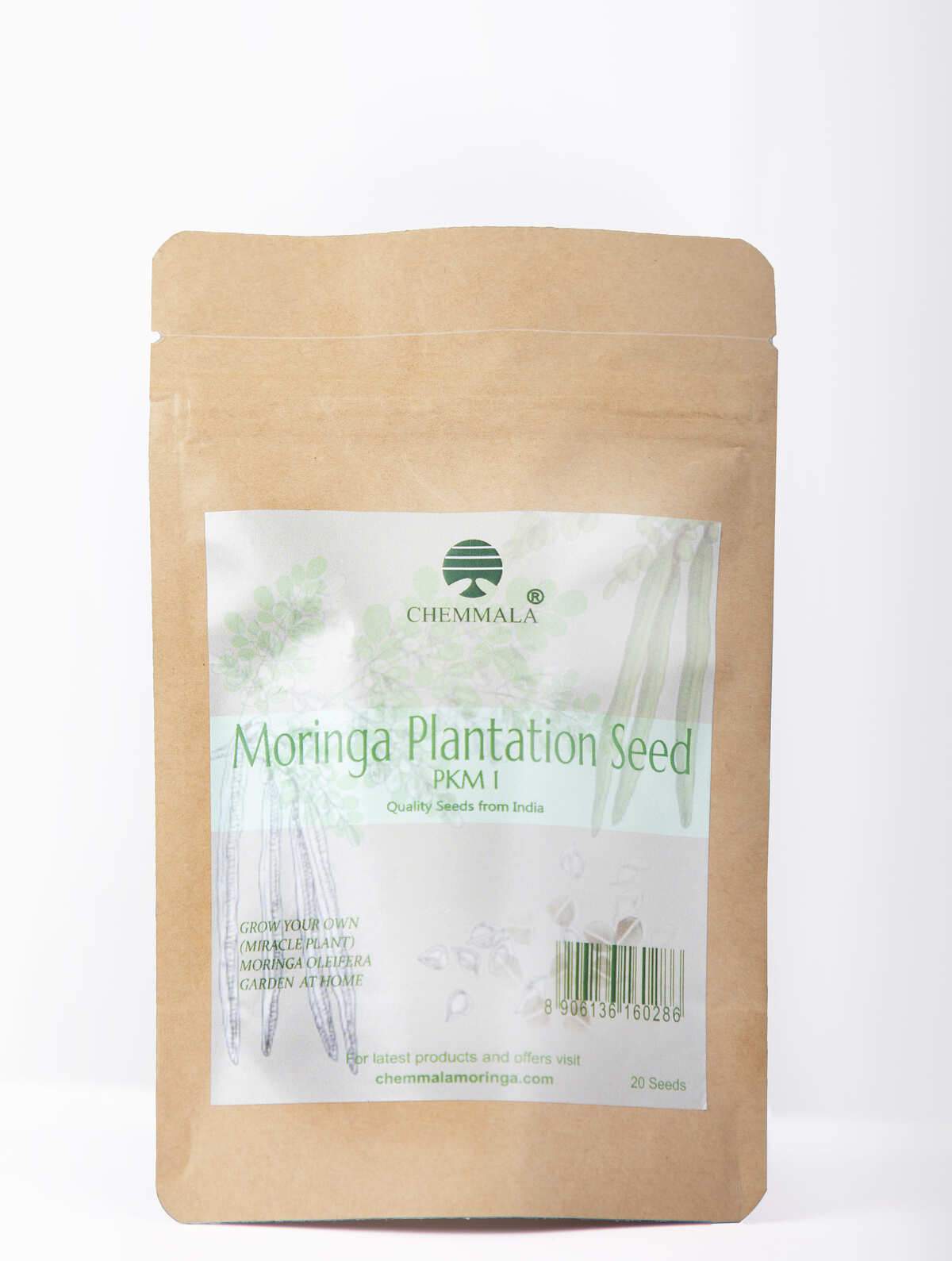Description
Chemmala Moringa Plantation Seeds PKM1 - Drumstick Vegetable / Horse Radish Tree / Moringa Oleifera
Known as “The Miracle Tree,” Moringa Oleifera or drumstick tree is a widely grown vegetable throughout India. It is a perennial multipurpose tree with distinctly appealing flavored fruit. Every part of the moringa tree is edible and useful for a variety of culinary and medicinal purposes.
Popular in some parts of the country as the horseradish tree, it has got plenty of nutritional value. The leaves of the trees are rich in minerals, vitamins, and other important phytochemicals. Extract from the leaves is used to augment breast milk in lactating mothers and also used to treat malnutrition.
Moringa tree parts are used as potential antioxidants, anti-inflammatory, anti-cancer, anti-microbial and anti-diabetic agents. Moringa seed is also a natural coagulant and is used extensively for the treatment of water.
Chemmala Moringa Plantation Seeds PKM1 is a high-yielding indigenous variety of moringa seeds that are excellent for sowing. The high-quality seeds can be planted in the home garden or bigger farm space. The seeds are only for gardening purposes and not for edible consumption.
The genuine and 100% authentic moringa seeds are best planted during the warm season and when there is less rainfall. The seeds can be stored in airtight boxes in cool places.
Specifications
Seed Type: Open-pollinated, non-hybrid and non-GMO
Plant Type: Woody tree trunks that grow up to 10 to 12 meters
Pod Character: Tender, green in color with white juicy flesh
Pod Length: 15 to 18 inches
First Picking: 65 to 75 days from sowing
Benefits
- Moringa is a superfood with extensive nutritional and medicinal value
- Chemmala Moringa Seeds are of an ingenious variety
- The plant keeps the environment clean
- The plant contributes towards biodiversity by attracting butterflies and bees
- Every part of the plant, including seeds, fruits, and leaves are useful in different ways
How To Sow
Instructions for planting
Moringa is a taproot plant and requires enough space below the soil for its roots to grow. A minimum of 20-inch soil should be dug to sow the moringa seeds. Water the area one day before sowing and keep the soil moist always. Add organic manure with coconut coir to enrich the soil.
Growing requirements
Location: Moringa plant needs at least 6 to 7 hours of direct sunlight for its trunk to develop. Sow the seed in a spot that is directly accessible to sunlight every day.
Temperature: Ideal germination temperature for moringa seed is between 21 to 35 degrees Celsius (70 to 95 degrees Fahrenheit)
Soil: The soil for sowing moringa seeds should be drained with organic manure. Clay soil is not recommended for sowing moringa seeds.
Watering: Moringa plants are drought resistant however the soil should be evenly moist as long as the woody trunks do not take shape. After that, watering can be need-based.
How to Harvest
Moringa pods should be harvested when they can be snapped easily. The yield is usually low during the first year of planting but gradually increases with each year. In North India, moringa pods are harvested in the summer season however in South India, they are harvested twice a year.
If the harvesting is for oil extraction, allow the pods to dry and turn brown on the tree before plucking it.
Disclaimer
*The productiveness of the seeds depends on the local climatic conditions, sowing method adopted and the care taken. We give no warranty, implied or expressed, and in no way responsible for the produce.
**The medicinal values of the tree are as per observation and in no way suggested or in place of medical prescription.

